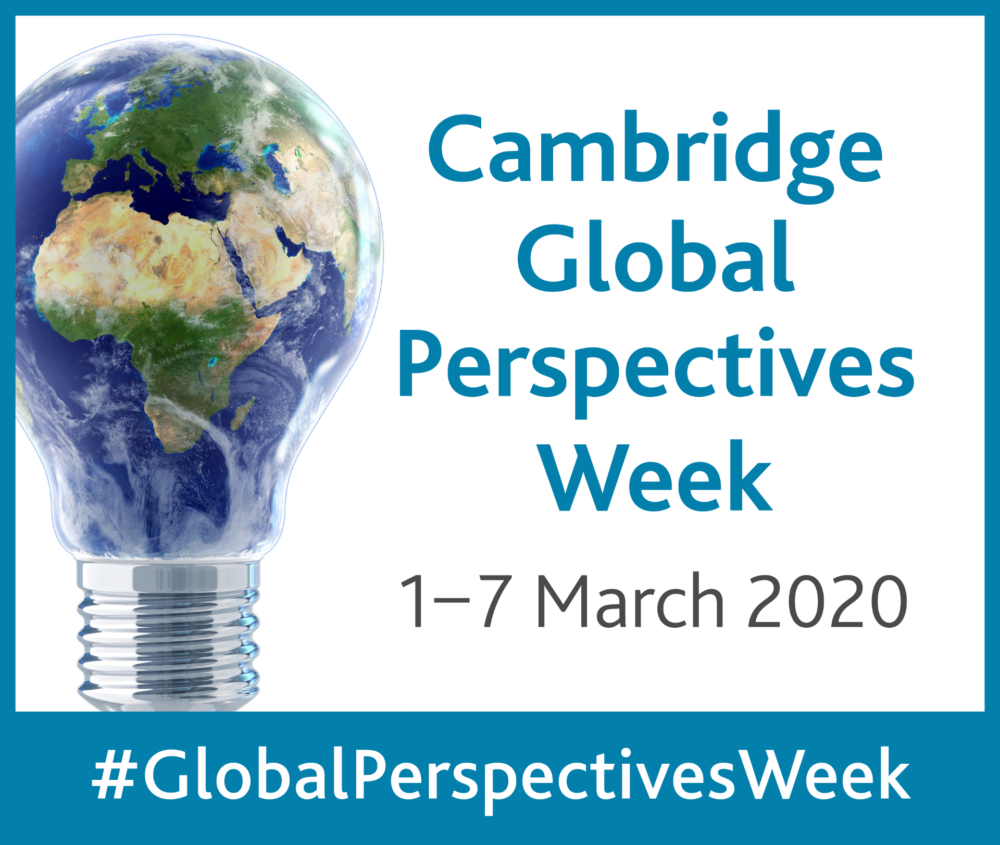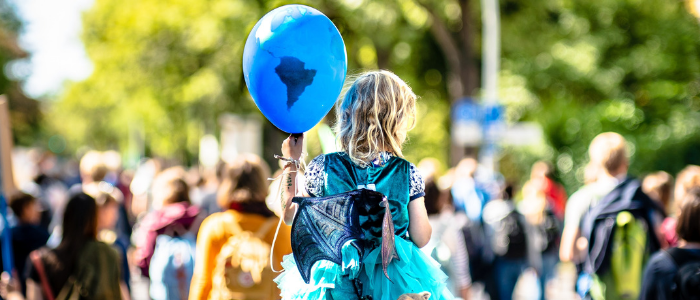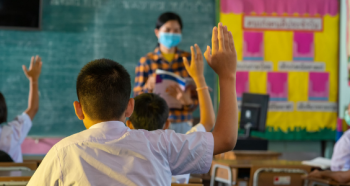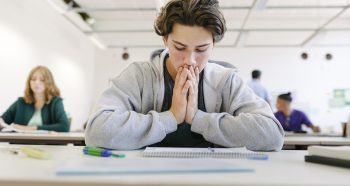We are living in a world that is changing rapidly. The fast-paced globalised economy is creating more opportunities, as well as increased competition. Against such an unpredictable backdrop, we have to think on our feet, especially when innovation is happening at breakneck speed. For all these reasons, it is crucial that our learners understand the world around them.
Students across the globe are future co-workers, as much as they are competitors, and so it is vital that they see how we are all interconnected through trade, media, digital technology, travel, politics and a common ecosystem. For the future generation to be successful, they need to evaluate and appreciate perspectives other than their own.
This aim of exposing students to global scenarios and enabling them to participate in shaping a better, shared future is made possible with Cambridge Global Perspectives™. Studying this subject allows learners to develop a strong sense of self in addition to appreciating cultural diversity. Encouraging students to think about global issues from a range of viewpoints helps affirm human rights and social justice, build peace, and work towards a sustainable future around the globe.
Tips for bringing the world into the classroom
I enjoy implementing Cambridge Global Perspectives with my learners following the 4 Cs – Creativity, Critical Thinking, Communication and Collaboration. Global thinking can be brought into our 21st century classrooms in many interesting ways, such as:
- including stories from around the world through books, videos and documentaries, as these are excellent ways to introduce children to other cultures that they may not be familiar with
- getting involved in community projects after extensive research on global solutions to local issues
- Planning educational tours and exchange programmes with schools abroad
- connecting with global educators
through our Cambridge International School network
- encouraging teacher exchange programmes, enabling them to share teaching and learning experiences across regional and national schools
- creating and maintaining links with
Cambridge classrooms across the globe.
- organising theme-based special events and projects in school
- working across the curriculum to
develop understanding
- introducing students to different types of media and research techniques
By implementing Cambridge Global Perspectives across grades 3-10 in our school, we have found that the course:
- focuses on the society and environments we live in
- fosters critical thinking and communication
in classrooms
- provides opportunities to explore change in an effort to build peace, strive for human rights and share responsibilities across genders, classes and different strata of society, equipping students to face challenges in the future
- creates an opportunity for students to develop positive and responsible values, attitudes and skills, and encourages active participation across all them.

Encouraging learners to explore other subjects
Global Perspectives is just one subject in the curriculum but it encourages a child to explore learning across different subjects. It can be widely integrated across subjects including mathematics, English, geography, the arts, social sciences and technology – among others.
Special projects that are led by enquiry-based learning in a learner-centric classroom provide opportunities for students to become engaged and are proven to have a lasting educational impact. An example of such a project is a programme we held at the end of last academic year focussing on the theme, ‘We are the Change Makers towards climate change,’ and involving every student. The learners in our early years programme emphasised the need to take action against climate change, the primary and middle school worked on putting together props and costumes made out of waste, and the high school presented facts, figures and a plan of action with the data they had collated from surveys conducted over the year, interviews with residents and government officials and visits to laboratories.
Cambridge Global Perspective instils in its learners awareness and a sense of responsibility, thereby getting them ‘future ready’ to handle conflicts and thrive in the 22nd century – an era of the unknown.






